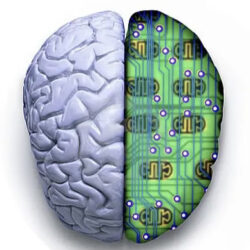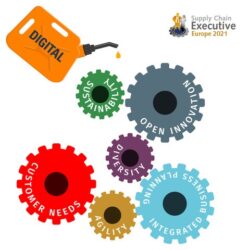‘Business leaders are out of touch in the digital age’

Most executives around the world are out of touch with what their businesses need to stay competitive in the digital economy. The outdated and ineffective leadership behaviours of today’s generation of executives are even undermining business performance, according to revealing findings from a new study by the MIT Sloan Management Review (MIT SMR) and service provider Cognizant.
The study, which was unveiled during the World Economic Forum in Davos, is based on a survey of 4,394 global executives from over 120 countries, 27 executive interviews and focus group exchanges with next-generation global emerging leaders. The most striking findings are summarized below:
Only 12% of respondents strongly agree their own leaders have the right mindsets to lead them forward. Only 13% strongly agree their organizations are prepared to compete in increasingly digitally driven markets and economies.
Digital economy
71% of respondents believe that they are personally prepared to lead in the digital economy. The same group scores significantly lower when asked whether they possess specific digital skills, such as using data analytics to influence their decision-making (55%) or advocating for the use of machine learning technologies in their organizations’ operations (50%).
While 82% agree the new economy will need ‘digitally savvy’ business leaders, less than 10% strongly agree that their organizations have the right leadership to thrive in the new digital economy. Only 40% believe that their organizations are taking the necessary steps to build robust digital leader pipelines.
Outdated skills and attitudes
“A generation of leaders in large companies are out of sync, out of tune and out of touch with their workforces, markets and competitive landscapes. What got them to their current exalted status won’t be effective much longer – unless they take swift action,” states Benjamin Pring, co-author of the report and director of the Center for the Future of Work for Cognizant.
“Allowing unprepared senior executives with outdated skills and attitudes to stick around forces next-generation, high-potential leaders to move on to new pastures, which harms morale and ultimately shifts the organization further away from where market demand is heading.”
Three types of leadership behaviour
The researchers have identified three categories of leadership behaviour:
- Eroding behaviour or outdated leadership patterns such as trusting in hierarchy for influence, ‘command-and-control’ decision-making and rigid strategic planning.
- Enduring behaviour – time-tested leadership attributes and behaviours including ethics, trust and integrity.
- Emerging behaviour, including digital savviness and collaborative skills.
New mindsets
However, the primary leadership challenges in the digital economy cannot be tackled by simply adopting a group of the above-mentioned leadership behaviours, according to the authors of the report. Instead, they warn that it is necessary to develop a new mindset that anchors, informs and advances the right behaviours.
They have identified four specific mindsets of successful leadership in the digital economy. First and foremost, the producer mindset. This combines a focus on customers with a focus on analytics, digital savviness, execution, and outcomes. The investor mindset is also desirable, according to the authors, because leaders with an investor mindset pursue a higher purpose beyond shareholder returns.
The third is the connector mindset. Mastery of relationships, partnerships and networks is a new currency that drives organizational effectiveness. Last but not least, an explorer mindset is indispensable. After all, explorers are curious and creative, and they operate well in ambiguous situations. They engage in continuous experimentation, encourage failure, and learn by listening to many, and varied, voices.
Click here to read the report in full.










